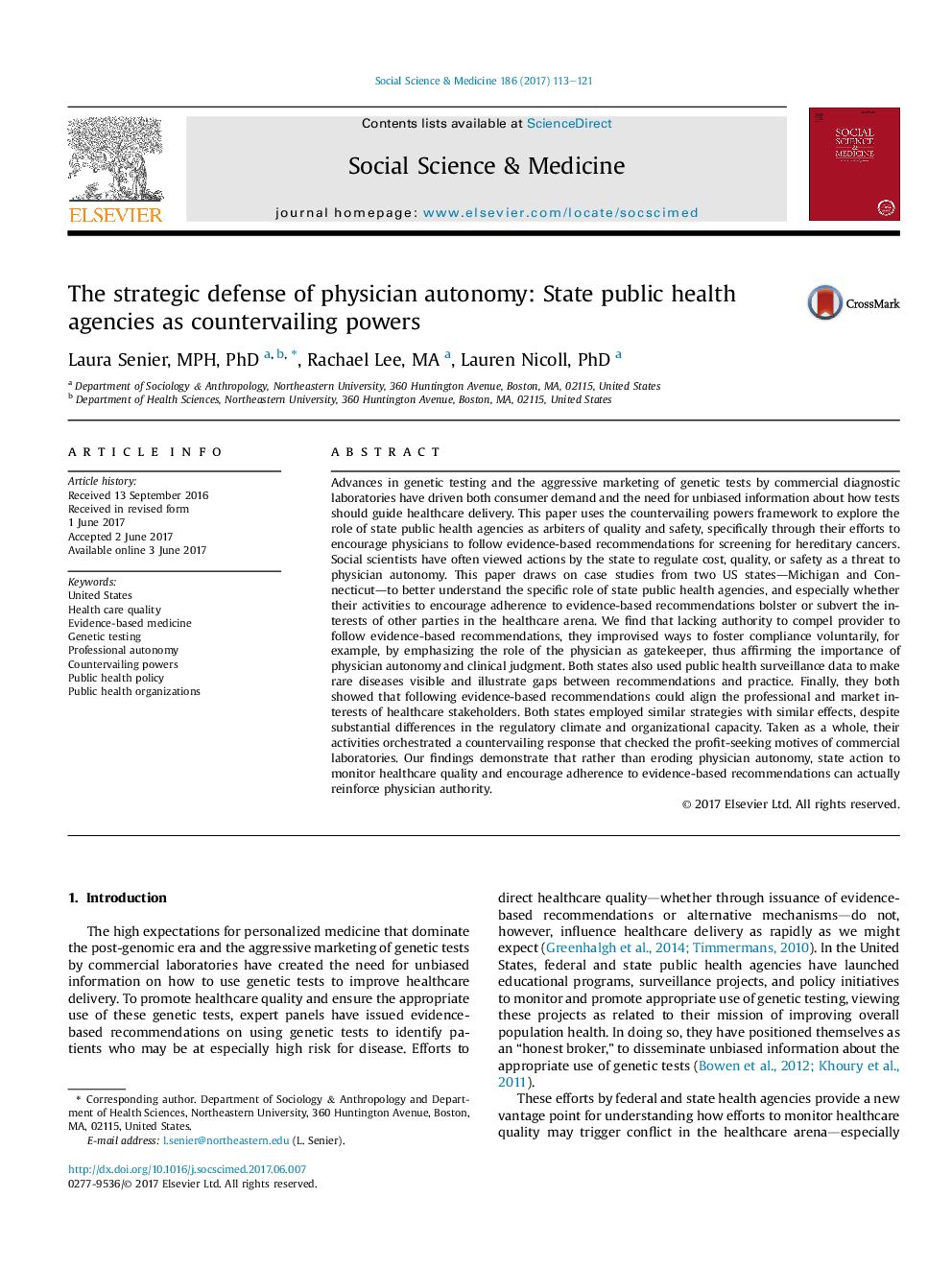| کد مقاله | کد نشریه | سال انتشار | مقاله انگلیسی | نسخه تمام متن |
|---|---|---|---|---|
| 5046389 | 1475983 | 2017 | 9 صفحه PDF | دانلود رایگان |
- Compares state public health agencies promotion of evidence-based recommendations.
- Expands our understanding of how public health agencies shape healthcare quality.
- Public health officials succeeded by strategically appealing to physician autonomy.
- Public health agencies are important actors in the countervailing powers framework.
Advances in genetic testing and the aggressive marketing of genetic tests by commercial diagnostic laboratories have driven both consumer demand and the need for unbiased information about how tests should guide healthcare delivery. This paper uses the countervailing powers framework to explore the role of state public health agencies as arbiters of quality and safety, specifically through their efforts to encourage physicians to follow evidence-based recommendations for screening for hereditary cancers. Social scientists have often viewed actions by the state to regulate cost, quality, or safety as a threat to physician autonomy. This paper draws on case studies from two US states-Michigan and Connecticut-to better understand the specific role of state public health agencies, and especially whether their activities to encourage adherence to evidence-based recommendations bolster or subvert the interests of other parties in the healthcare arena. We find that lacking authority to compel provider to follow evidence-based recommendations, they improvised ways to foster compliance voluntarily, for example, by emphasizing the role of the physician as gatekeeper, thus affirming the importance of physician autonomy and clinical judgment. Both states also used public health surveillance data to make rare diseases visible and illustrate gaps between recommendations and practice. Finally, they both showed that following evidence-based recommendations could align the professional and market interests of healthcare stakeholders. Both states employed similar strategies with similar effects, despite substantial differences in the regulatory climate and organizational capacity. Taken as a whole, their activities orchestrated a countervailing response that checked the profit-seeking motives of commercial laboratories. Our findings demonstrate that rather than eroding physician autonomy, state action to monitor healthcare quality and encourage adherence to evidence-based recommendations can actually reinforce physician authority.
Journal: Social Science & Medicine - Volume 186, August 2017, Pages 113-121
